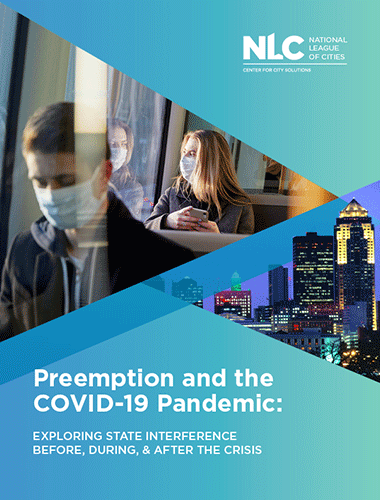Exploring State Interference Before, During, and After the Crisis
The COVID-19 pandemic has fundamentally altered daily life, brought the economy to a screeching halt, and has challenged every level of government.
Cities, towns, and villages not only face challenges confronting the virus, but in confronting state interference in their response as state preemption has severely limited or outright prevented local leaders from implementing the policies their communities need.
Preemption has a long and complex history. It has been used to set minimum standards to protect people, but it has also been used to prevent cities from implementing tailored policies to serve their residents. This paper explores how the preemption doctrine has been used before and during the crisis to limit how municipalities were, or were not, able to respond. This paper also explores where cities and states have been able to work together; what the future may hold in the face of a continuing crisis; and options for cities to address this state interference in a proactive way.

